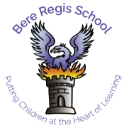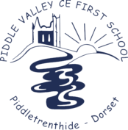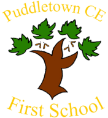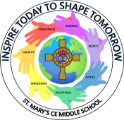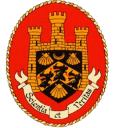
Media Studies
Why Study Media Studies at The Purbeck School?
Media Studies is all-embracing and has never been more relevant. From videogames, to newspapers and social media, the media is everywhere. We study a variety of texts, some produced within the last year and others that date back to the early 1950s. This allows students to explore social, cultural, political and technological changes, enhancing their ability to empathise with various viewpoints and perspectives. We create a culture that encourages critical thinking, discussion and debate which benefits pupils beyond the classroom. We study exciting texts, including the Marvel film Black Panther, the Assassin’s Creed franchise and the Bond film franchise. Media Studies at Purbeck is stimulating, engaging and thought provoking.
Students also learn how to create their own products using professional software and equipment (including Adobe Photoshop, Adobe Premier Pro and a green screen). These technical skills are invaluable in any career, especially as our reliance on technology continues to increase. The last half of the Summer Term is dedicated to this, as students start to plan and create their GCSE course work projects.
How is Media Studies taught?
- KS4 – Students are taught in mixed ability classes for five hours each fortnight.
- KS5 – Students are taught (normally shared across two members of staff) for nine hours each fortnight.
Rationale and ambition for The Purbeck School Media Studies curriculum:
In today’s society, we are surrounded by the Media. Therefore, it is important that students learn how media impacts society. The Media Studies curriculum aims to teach students about media industries and how media institutions are largely profit driven. This impacts how media language is used to construct representations that maximise audiences and consequently increase profits. The curriculum also aims to explore how audiences are becoming increasingly active – not only are they consumers of texts but they are also becoming producers which is further changing the media world.
- Our Media Studies curriculum aims to prepare students for work and life through the development of technical skills, such as image and video editing.
- Our Media Studies curriculum aims to prepare students for work and life through the development of communication and language skills and understanding how different forms of communication are used for different media forms, products and industries.
- Our Media Studies curriculum aims to develop cultural capital of students by exploring media developments and historical, cultural and political contexts.
- Our Media Studies curriculum aims to develop empathetic and engaged citizens through the study of various theories and perspectives. Students learn about the representation of ethnicity, gender, social class, ability, age and culture.
- Our Media Studies curriculum aims to support students in developing confidence in expressing their viewpoints orally and on paper.
- Our Media Studies Curriculum aims to support students to become critical thinkers.
- Our Media Studies Curriculum aims to offer suitable challenge to students of all abilities.
Key concepts:
The concepts that The Purbeck School Media Studies curriculum aims to support student progression in are:
Understanding of media language.
Students will learn how the media communicates meaning through forms, narratives and codes and conventions. In doing this, they will learn how narratives are created, how meaning is constructed and the different expectations of each form and genre.
Understanding of media audiences.
Students will learn about how media products target, reach and address audiences. They will also learn how audiences interpret texts differently, depending upon context. Students will explore the extent that the media influences audience behaviour, values and identities.
Understanding of media industries.
Students learn about processes of production, distribution and circulation and how they vary across different media forms and platforms. Students will learn how the media industry is structured, how it is changing and issues that might occur as a result. Students will also learn about specific industries in detail.
Understanding of media representations
Students will develop an understanding of how people, places and events are represented in the media. They will explore the portrayal of individuals and social groups. To do this, students will learn how and why representations are used by producers and how stereotypes can be maintained and challenged.
Understanding of historical, social and political contexts.
Students will learn how the production, reception and circulation of media texts depends on the historical, social and political context. Therefore, how texts are produced and received changes over time.
Understanding of how to create a media text using a brief.
For their NEA, students must independently create a product in response to a brief set by the exam board. The briefs vary each year but will be linked to the Media Studies set texts and industries that they have studied. The students must communicate meaning to a specified target audience, following the conventions of the form and genre they have chosen. Media language and representations must be appropriate and will perhaps challenge ideas, widely held, in society. Alongside this, students will write a statement of intent which explains their ideas and plans.
Useful links
- eduqas Media Studies: https://www.eduqas.co.uk/qualifications/media-studies-gcse/#tab_keydocuments
- eduqas A Level Media Studies: https://www.eduqas.co.uk/qualifications/media-studies-as-a-level/#tab_keydocuments


